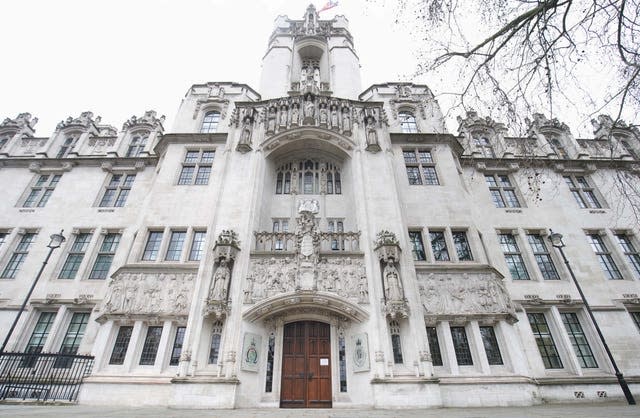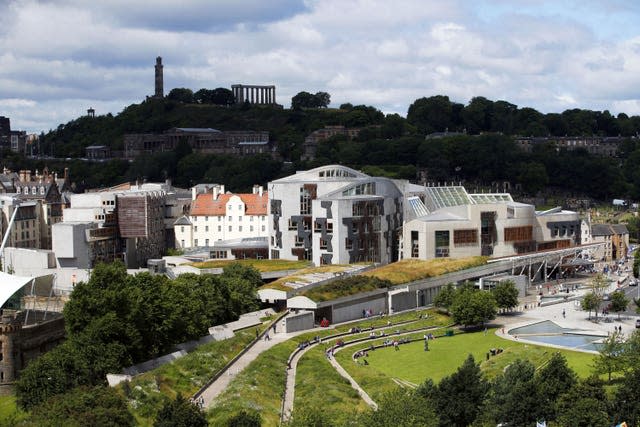New laws would give Scottish Parliament ‘unparalleled powers’, court told
Two proposed laws passed unanimously by Holyrood could give Scottish courts “unparalleled” powers to strike down legislation from the UK Parliament, the Supreme Court has heard.
The UK’s highest court is hearing a challenge to two Bills passed by the Scottish Parliament to incorporate international treaties into Scottish Law.
In March, the Scottish Parliament unanimously passed the United Nations Convention on the Rights of the Child (UNCRC) (Incorporation) (Scotland) Bill, which would require public authorities to respect children and young people’s rights.
It also would let children, young people and their representatives go to the courts to enforce their rights, and allow courts to strike down legislation that is incompatible with the UNCRC.

“The UNCRC Bill is concerned with furthering children’s rights in Scotland. The true purpose of placing the duty on public authorities is to protect children’s rights and to further the fulfilment of those rights in Scotland,” said James Mure QC, representing the Lord Advocate for Scotland.
The Scottish Secretary, Alister Jack, previously raised concerns that the legislation could potentially put legal duties on to UK Ministers, which would be outside the scope of the Scottish Government’s power, and referred it to the Supreme Court for guidance.
The European Charter of Local Self-Government (Incorporation) (Scotland) Bill, which was also passed unanimously by MSPs, was also referred over similar concerns.
On Monday, Sir James Eadie QC, for the Attorney General and the Advocate General for Scotland, told the court the case concerned “whether the Scottish Parliament has the legislative competence to subject acts of the UK Parliament with the need to comply with the UNCRC and to assign or delegate to the Scottish courts powers to strike down, rewrite or declare incompatible provisions of the acts of the sovereign UK Parliament”.
The UK Government has said their concerns “are not about the substance of the legislation” but whether the Scottish Parliament has the legal ability to pass the Bills.
In written arguments, Sir James said: “Both Bills, in slightly different ways, purport to bestow upon the Scottish courts extensive and, in part, unparalleled powers to interpret and to scrutinise the legality of primary legislation passed by the sovereign UK Parliament at Westminster.”
The barrister said there were issues with sections of both Bills, adding that parts of the UNCRC Bill may “adversely” affect Parliament’s ability to legislate for Scotland.
Sir James continued: “The Scottish Parliament is purporting to require Acts of the sovereign Parliament to meet a test to which Parliament has not assented and which may indeed conflict with a purpose Parliament is seeking to achieve.”
Arguing one section of the UNCRC Bill would allow the courts to “invalidate” parts of an act of Parliament in Westminster, Sir James continued: “It purports to create a jurisdiction unparalleled in any domestic rule of law or legislation.”
The barrister added that, without clarification from the Supreme Court, multiple court cases are likely to be brought, “causing uncertainty and frustration for the children whom the UNCRC Bill is intended to protect, and those who represent them”.
The Supreme Court heard the UK ratified both UN treaties in the 1990s.

However, neither of the Bills can become law in Scotland until after the outcome of the legal challenge.
In written arguments, Mr Mure said that none of the provisions modify the law on the relationship between the powers of Westminster and Holyrood “on a proper reading”.
He also argued that if the application of part of one of the Bills would be beyond the scope of the Scottish Parliament, it would be read narrowly to keep it within its legislative powers due to other existing restrictions on Holyrood.
He told the court: “The UK Law Officers do not challenge the competence of the Scottish Parliament to incorporate these treaties into Scots law.
“The only question for this court is whether, in effecting that incorporation, the Bills or either of them infringe the limits on the Scottish Parliament’s legislative competence.”
The barrister later argued that it was not necessary to “copy out” all of the limits on the Holyrood’s power into every Bill.
“It follows from the structure of the devolution arrangements that all legislation of the Scottish Parliament falls to be read and applied subject to the limits on legislative competence,” he said.
Mr Mure added that the “strike down” declaration that could be made under one of the sections of the UNCRC bill is only concerned with pre-existing legislation provisions which would be within the Scottish Parliament’s power to repeal or amend.
He also said the UNCRC Bill is modelled on the Human Rights Act.
He said: “Both the HRA and the Bills confer upon the Scottish courts extensive powers to interpret and scrutinise primary legislation passed both by the Scottish Parliament and by the UK Parliament. If the HRA respects Parliament’s sovereignty, so do the Bills.”
The Welsh Government are also involved in the case and will make oral submissions on Tuesday.
The case, which is being heard by five Supreme Court justices, is expected to end on Tuesday with judgment reserved until a later date.


